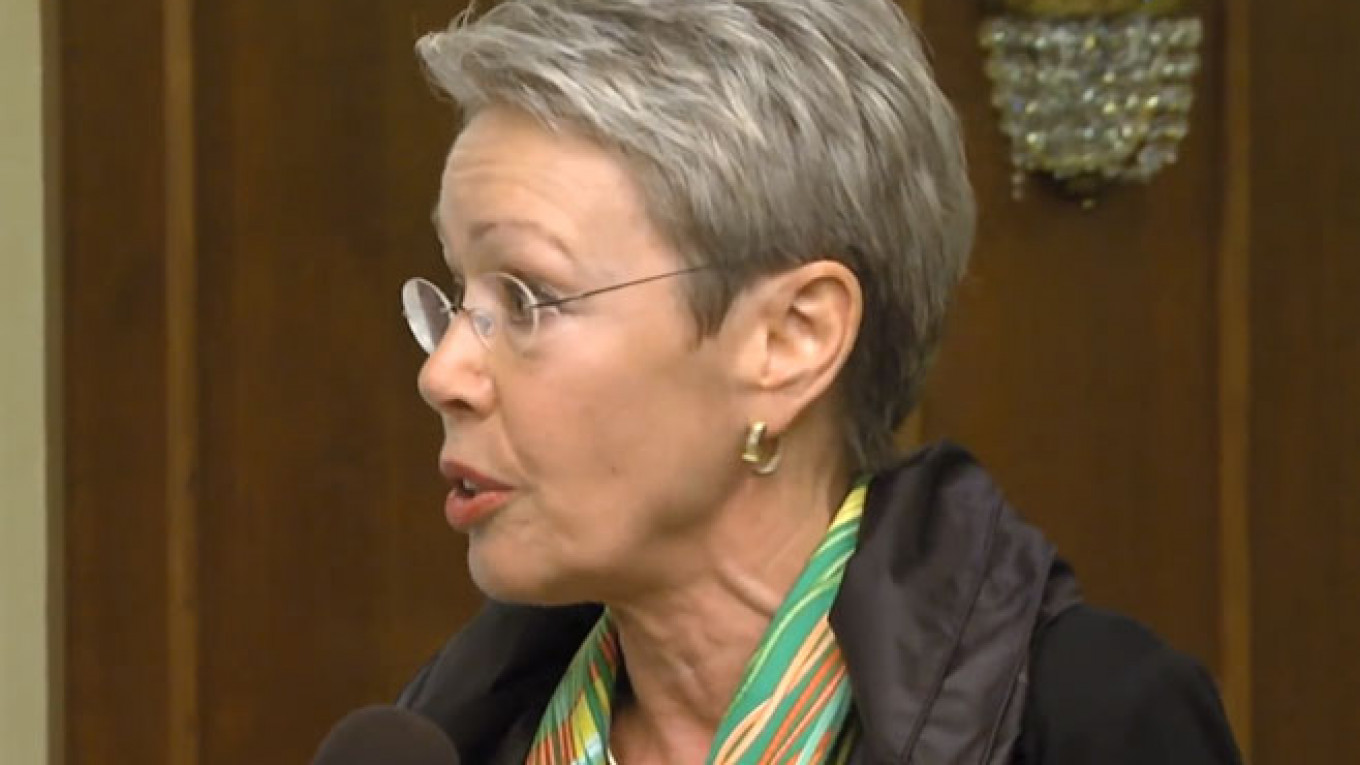Western diplomats must be asking themselves: "How can we influence the Kremlin after Russia's seizure of Crimea? What should we do about President Vladimir Putin? How can we bring the situation back to normal?"
I have an idea: Let's send Heidi Tagliavini to Crimea. She's the Swiss diplomat who led a European Union commission on the Russia-Georgia War in 2008.
Her group produced an absolutely stunning report. For example, they boldly asked the question: Did Abkhazian aircraft have the right to bomb Georgian territory? To which they fearlessly replied, "No. It was a violation of international law."
Of course, that overlooked one small point: Abkhazia has no Air Force, just as the tiny breakaway territory of 80,000 Abkhaz people has no strategic bombers or flying saucers. The real question should have been: "Were the aircraft flying out of Abkhazia actually Russian planes using the Soviet-era airfield in Gudauta?"
If so, it invalidates Moscow's claim that it was fighting to "protect the Ossetian people from Georgian aggression" and indicates that Russia was actually implementing a well thought-out and planned military strike using two flags. But Tagliavini's brave commission never even posed that question.
But the best part of the Tagliavini commission's findings concerns the question of who started the war. It reported that, according to the Russians, the war started when Georgian militants launched an unprovoked attack against the peaceful and sleeping citizens of Tskhinvali, and that, according to the Georgians, the war began when Russian troops crossed into Georgian territory, forcing Tbilisi to retaliate. In its attempt to act objectively, without actually trying to ascertain the truth, the commission simply reported both sides of the story.
So, if the EU is wondering how to cope with the awkward situation in Crimea, it should send the Tagliavini commission there.
The Tagliavini commission will write that Ukrainians claim they did not kill or threaten any Russians and that the people who seized the administrative buildings and infrastructure in Crimea are Russian military personnel. It will also state that, according to the Russian version, Ukrainian fascists financed by the West are threatening the Russian-speaking people of Crimea with genocide and the men who seized the administrative buildings and infrastructure in Crimea are local "self-defense" forces. As an objective body, the Tagliavini commission will report both sides but ignore the question of which is true.
If the West wants to somehow influence the unpredictable and dangerous regime of a ruler who, in the words of German Chancellor Angela Merkel, lives "in a different world," it should not start with sanctions and visas.
It should start by getting rid of all the diplomats and politicians who, for whatever reason, wrote anything like the Tagliavini commission report and therefore convinced Putin that the West is run by suckers, corrupt politicians and idiots that he can buy off, pressure or blackmail in order to get out of any situation.
Tagliavini should be dismissed in disgrace from every bureaucratic post she holds.
When she retires, she will no doubt write a new history of World War II that reads something like this: "According to the Germans, World War II began when the Poles captured a German radio station in Gleiwitz, and according to the Poles, the Germans dressed as Poles and seized the station to provoke a war. It remains a mystery as to which of these versions is true."
Yulia Latynina hosts a political talk show on Ekho Moskvy radio.
A Message from The Moscow Times:
Dear readers,
We are facing unprecedented challenges. Russia's Prosecutor General's Office has designated The Moscow Times as an "undesirable" organization, criminalizing our work and putting our staff at risk of prosecution. This follows our earlier unjust labeling as a "foreign agent."
These actions are direct attempts to silence independent journalism in Russia. The authorities claim our work "discredits the decisions of the Russian leadership." We see things differently: we strive to provide accurate, unbiased reporting on Russia.
We, the journalists of The Moscow Times, refuse to be silenced. But to continue our work, we need your help.
Your support, no matter how small, makes a world of difference. If you can, please support us monthly starting from just $2. It's quick to set up, and every contribution makes a significant impact.
By supporting The Moscow Times, you're defending open, independent journalism in the face of repression. Thank you for standing with us.
Remind me later.








